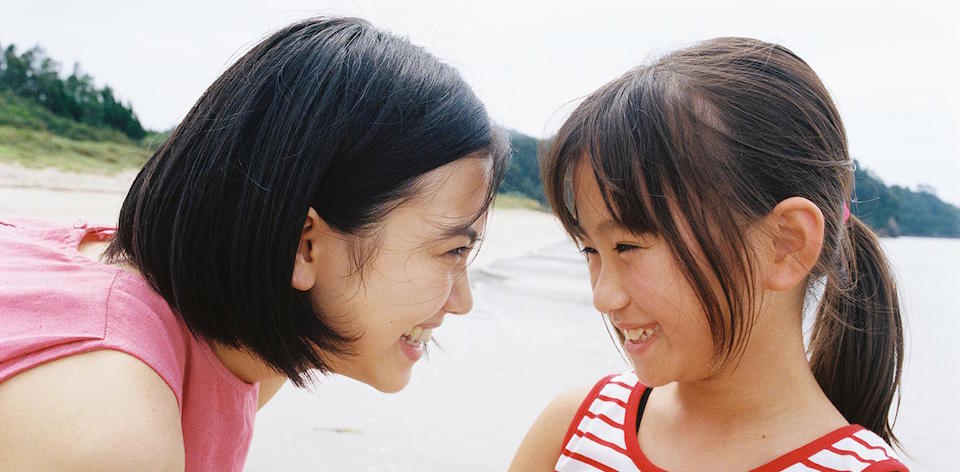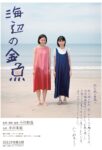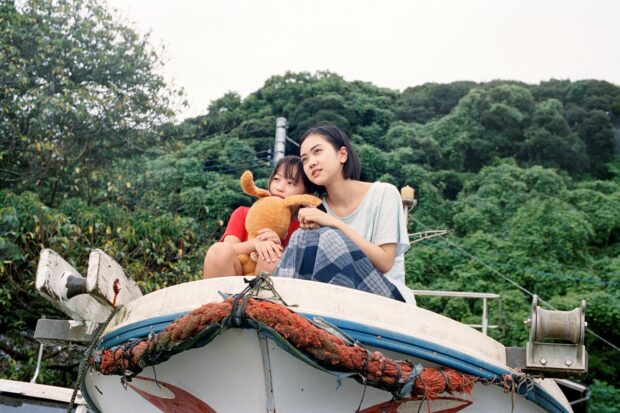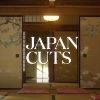Filmmaker Sara Ogawa is primarily known for her work in front of the camera, most recently Dear Patient. For her first directorial outing since the mid-length Beatopia (2017) and the short She’s Gone (2018), Ogawa has not chosen an easy topic. In a film that deals with trauma and grief, THE GOLDFISH: DREAMING OF THE SEA (海辺の金魚) marks her as filmmaker with a unique and refined point of view.
Ogawa’s film begins as something of a puzzle. A teenage girl, Hana (Ogawa Miyu), is by the ocean frantically calling for her mother. Moments later she is teling the younger Harumi (Hanada Runa) not to be afraid. Both live in the Home for Children of the Star, a foster home run by a kindly patriarch (Serizawa Tateto). Hana is turning 18 and has taken on ‘big sister’ caring duties, serving as an ideal model for the others. The recently arrived Hana is the polar opposite, rebelling and running away at every turn.
THE GOLDFISH is a film that slowly unfolds, a remarkable feat for a film with such a slender running time. It’s very rarely said overtly, but we soon learn that both Hana and Harumi have a shared experience of a difficult relationship with their mothers. Hana’s mother is in prison for a crime we only get sketches of at first, and she barely remembers. Harumi is unable to verbalise her trauma, but her bruises speak to what they might be.
There are shades of Hirokazu Kore-eda and Naomi Kawase‘s stylistic beauty in Ogawa’s work. In fact, that’s Kore-eda’s longtime collaborator Yutaka Yamazaki behind the camera. The lens floats around a dinner table some of the time. At others, it’s right up close and intimate as Hana reads Harumi a bedtime story. Maintaining a measured pace throughout, Ogawa’s film is one that literally takes time to stop and smell the flowers while maintaining a laser focus on character.
The two young stars are excellent, conveying a natural presence that never feels like conscious performance. Both performances demonstrate an understated and communal trauma. Ogawa shows some of that past through a sparse use of flashbacks, but they wear their pain just under the surface in every scene. There are numerous moments of levity though, such as Harumi repeatedly putting candy back in Hana’s shopping basket after being told not to.
Building to an emotional and cathartic conclusion, we realise how much Hana (and by extension Ogawa Miyu) has been holding back for the brief duration. Like the titular goldfish, she’s finally heading for the bigger pond and all that represents. Coming full circle and answering the question posed in the opening scene, Sara Ogawa signals her arrival as storyteller to watch.
2021 | Japan | DIRECTOR: Sara Ogawa | WRITERS: Sara Ogawa | CAST: Ogawa Miyu, Hanada Runa, Serizawa Tateto | DISTRIBUTOR: JAPAN CUTS 2021 | RUNNING TIME: 76 minutes | RELEASE DATE: 22 August – 2 September 2021 (JAPAN CUTS 2021)







